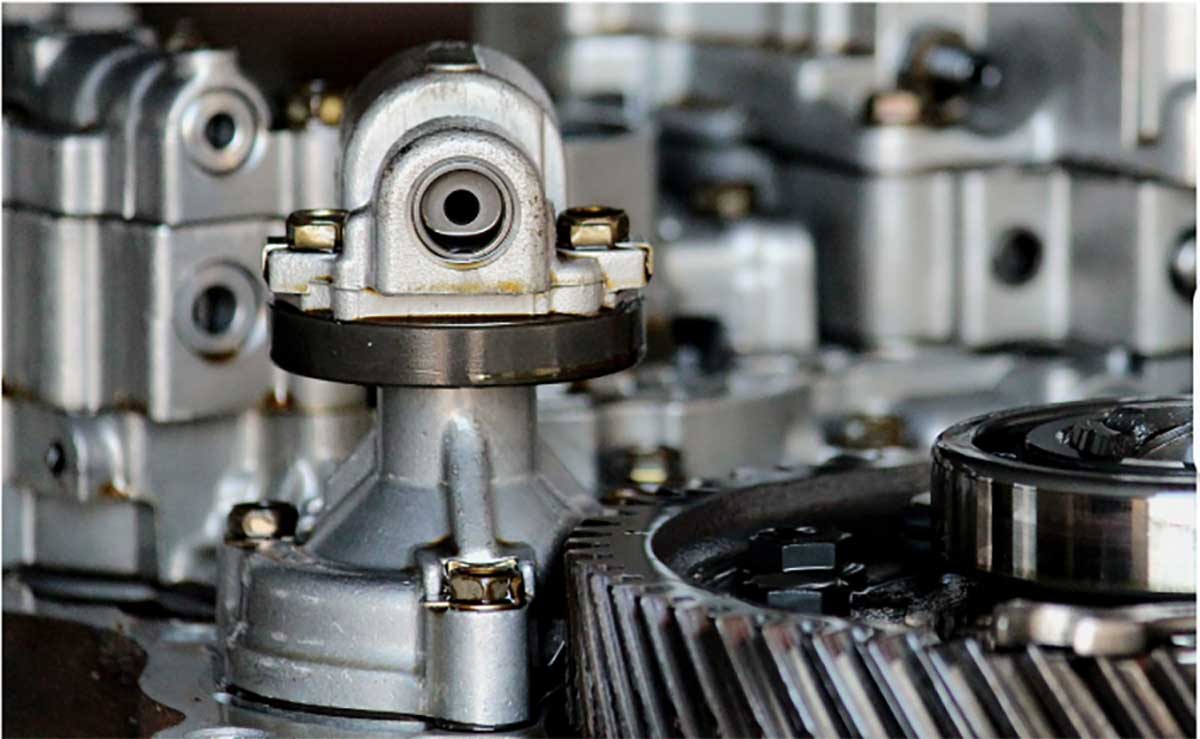A guide to your fluids with Southwest Truck and RV
Happy March, and welcome to our newest blog! All things to do with the fluids involved in your transmission. When we start to approach spring, it is an extra good time to think of your vehicle maintenance, which includes your transmission fluids. while it doesn’t get very cold here in Prescott Valley, that doesn’t mean your fluids should be overlooked.
In this blog, we will guide you through the different and best types of transmission fluid for your vehicle. We are here to help make the transmission fluids easier to understand. Let’s rev up our engines and delve into the world of transmission fluids. After all, a well-maintained vehicle is a happy vehicle, and that’s what we all strive for in our long and short journeys.
Transmission Fluids
Your transmission fluid is the lifeline of your vehicle’s transmission system. Your transmission’s fluid is essential for your vehicle daily. It serves multiple functions – it lubricates the moving parts inside your transmission, minimizing friction and wear; it cools the transmission, preventing overheating even in the warm climates of Prescott Valley; and it helps transmit power from the engine to the wheels, ensuring that your vehicle responds efficiently to your driving commands.
There are different types of transmission fluids, such as conventional transmission fluids, which are dependable for regular driving conditions. Synthetic transmission fluids are made to provide better protection and efficiency, especially in harsher conditions. These synthetic options offer better resistance to high temperatures, longer lifespan, and improved fuel efficiency.
Different types of vehicles need different types of fluids. For instance, an automatic transmission fluid is specifically designed for vehicles with automatic transmissions, showing the actual thickness and additives needed for the complicated functions of these systems. Manual transmissions require different fluids to ensure smooth gear shifts and dependable operation.
Understanding these is important in choosing the correct transmission fluid for your vehicle.
Different Types of Transmission Fluids
Regarding transmission fluids, there are different types that could be right for your vehicle, but one is unsuitable for some. The type of transmission fluid you need depends mainly on your vehicle’s transmission.
Automatic Transmission Fluid
Automatic transmission fluid is the most typically used transmission fluid, made especially for vehicles with automatic transmissions. Automatic transmission fluid lubricates the transmission components and is a hydraulic fluid, allowing smooth gear shifts.
Manual Transmission Fluid
Vehicles with manual transmissions need a different formulation. Manual transmission fluids are made to coat gears and protect against wear without the hydraulic properties required for automatic transmissions. They are often made to enable smooth gear engagement and disengagement.
Continuously Variable Transmission Fluid
CVT fluids are a different transmission type and require a specific fluid type. CVT fluids are made to maintain constant friction and smooth processes over various speeds and engine loads. This specialized fluid helps to ensure the belt or chain in a CVT operates smoothly, providing a seamless driving experience.
Specialty Fluids
Certain vehicles, especially fancy ones or those with unusual transmissions, might need specialty fluids. These fluids are made to work in specific conditions like very hot temperatures or to help the vehicle’s parts work together better.
Each type of transmission fluid is formulated differently. They contain different additives to protect the transmission, reduce wear, and ensure smooth operation. Using the correct fluid type for your vehicle’s transmission is crucial for its health and efficiency.
What Does Your Vehicle Need?
Understanding your vehicle’s specific needs is the key to choosing the right fluid. This is where your vehicle’s manual plays an important role. Pay attention to specifications like viscosity and additive requirements. Remember, using the wrong fluid is like putting a sprinter in a sumo match – it just won’t work well!
Synthetic vs. Conventional
Choosing between synthetic and conventional transmission fluids is a crucial decision for vehicle owners, akin to selecting between high-tech innovation and time-tested tradition.
Synthetic Fluids
These are the advanced players in the fluid world. They excel in heat resistance, making them ideal for extreme conditions or high-performance vehicles. Their durability means more extended protection between changes and often enhances overall performance. Though more expensive, the long-term benefits, like improved fuel efficiency, can justify the cost.
Conventional Fluids
As the traditional choice, these fluids are more budget-friendly and reliable for everyday driving. They’ve served well for decades and are particularly suitable for older vehicle models not designed for synthetic varieties.
The decision hinges on your vehicle’s requirements, driving habits, and personal
preferences. High-stress driving conditions or modern vehicles may benefit more from synthetic fluids, while conventional fluids are typically sufficient for regular driving and older models. Choosing the right transmission fluid is not just about price or type; it’s about matching the fluid to your vehicle’s needs for optimal performance and longevity.
Choosing the right transmission fluid might seem daunting, but ensuring your vehicle stays healthy and performs at its best is vital. At Southwest Truck and RV, we take pride in offering top-notch services tailored to meet the unique needs of all vehicles, from Kias to Kenworths. Our team of experienced technicians understands the intricacies of different SUV models and is committed to delivering the highest standards of care. Don’t leave anything to chance when it comes to your SUV. Book an appointment with us for a comprehensive check-up, maintenance service, or expert consultation on accessories and modifications.
At Southwest Truck and RV Repair, we want our customers in Prescott Valley, AZ, and surrounding areas to get the most out of their vehicles. What’s the key to keeping your vehicle running for a long time? Following the recommended maintenance intervals outlined in your owner’s manual and checking for potential problems before they happen are essential to overall vehicle maintenance. But when the time for necessary auto repairs arrives, remember where to turn: Southwest Truck and RV Repair. Schedule your appointment with Southwest Truck and RV today!

